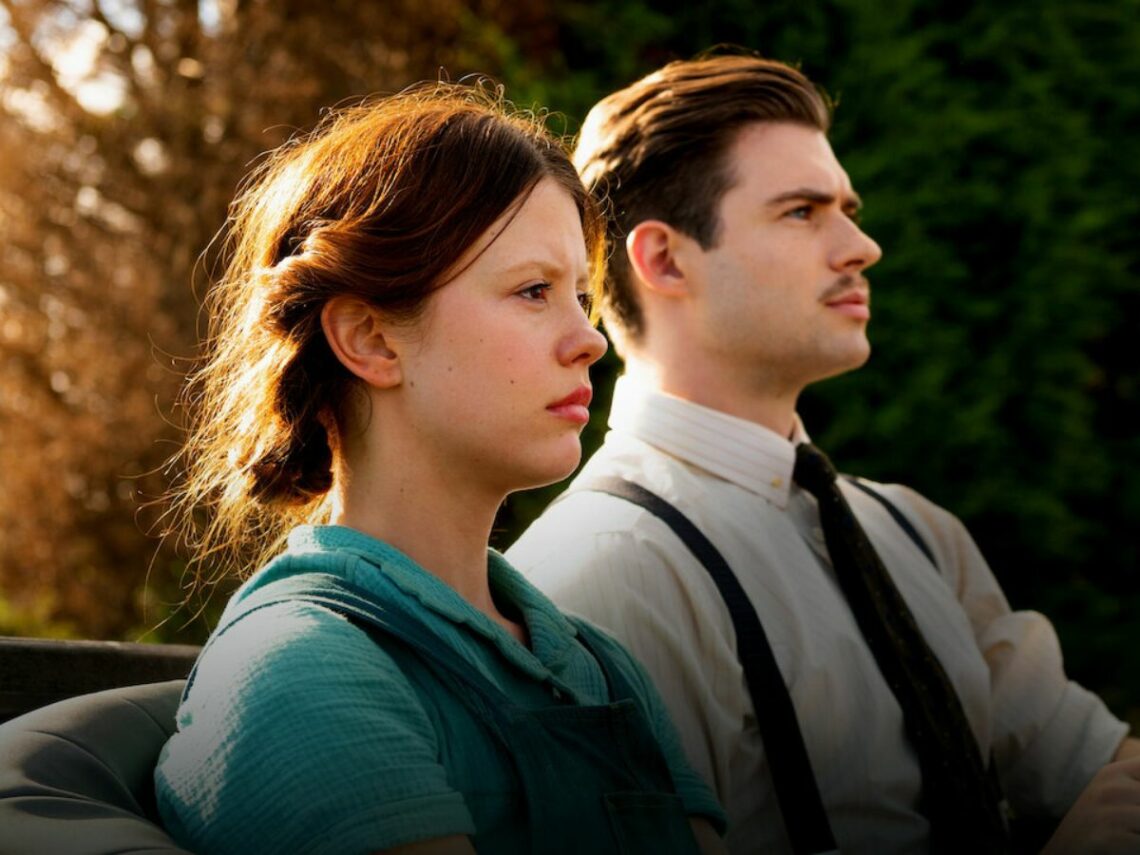
How ‘Pearl’ became Mia Goth’s most difficult performance
“All my characters are me, turned up or turned down,” Mia Goth told Vanity Fair. When it came to stepping into the shoes of Pearl for the second movie in Ti West’s X trilogy, it was her turned up to a thousand. Grappling with loneliness, purpose, belonging and a quest for a better life, all through the heart of a character that feels everything hard, the emotional centre of Pearl builds and builds until it bursts, in what Goth said was “the hardest thing I’ve ever had to film in any movie that I’ve been in.”
But it wasn’t only that scene that was hard. Goth repeatedly talks about the impact Pearl had on her as both a project and a part to play. After playing the character as an old lady in X, Goth seemed to have an incredibly strong connection to her and her story. It was so strong that when it came to making the sequel, which would go back to her origin story, she came onto the project not just as the lead actor but as a writer too, playing a significant role in crafting the figure and seeming to act as a kind of protector or guardian of her world. Goth wanted to do her justice, but with that determination comes great pressure.
But even without that, Pearl is a demanding role. If someone merely read the script, she would be a villain. Here is a girl who is utterly ruthless in her mission for a better life. She’s murdering people who stand in her way, lashing out at those who let her down and spiralling deeper and deeper into depravity as she panics that maybe she won’t achieve stardom. Yet the power of the character, and why she became so beloved, is the incredible pathos she’s played with. Despite her actions, Pearl is a character audiences love and root for. They understand how her soul seems to work and are caught up in wanting the best for her. While doing all these horrendous deeds, Goth makes the character sweet, loveable and deeply endearing.
All of that culminates in the film’s climactic moment. As her plan for stardom crumbles around her, Pearl is left devastated. As her sister-in-law attempts to console her, the character completely breaks down. At that moment, Goth delivers a nearly ten-minute-long monologue with no other lines to bounce off, no interruptions, no support, just pure emotion.
The monologue serves as the emotional crux of the movie and the entire character. It’s here that the audience truly understands Pearl as she confesses to her deep loneliness, her resentment towards her husband, her family, her class, her everything, and her deep-rooted sense that there is something very wrong with her. “Howard…I hate you so much for leaving me here, sometimes I hope you die,” she begins, already heavy and emotive. She’s begging, “What did I do? What is wrong with me? Please, just tell me so maybe I can get better,” but in a completely calm, controlled way where so much feeling is bubbling under the surface, but Goth never lets it overflow. In the end, the core of it is simple as she admits, “All I really want is to be loved,” serving as the ultimate motivation for the character.
It is a staggering performance by Goth, and it’s easy to see why it was so hard to do. This isn’t a hysterical, melodramatic breakdown. Instead, it’s a cool, calm confession of a lifetime of feeling that Pearl has been trapped under forever. In that moment, Goth, as an actor, had to display so much emotion while really displaying none of it at all. It’s a true masterclass in subtlety and feeling.
But as she pulled it off, the achievement has stuck with Goth. “I believe Pearl has fundamentally changed me as a performer,” she told Variety about the impact the character had on her. “It’s given me a whole new sense of self and a whole new level of confidence in terms of what I think I am able to do,” she continued, awash with a sense of pride in herself and the power that difficult job has left her with as she had her hardest challenge yet and rose to it.